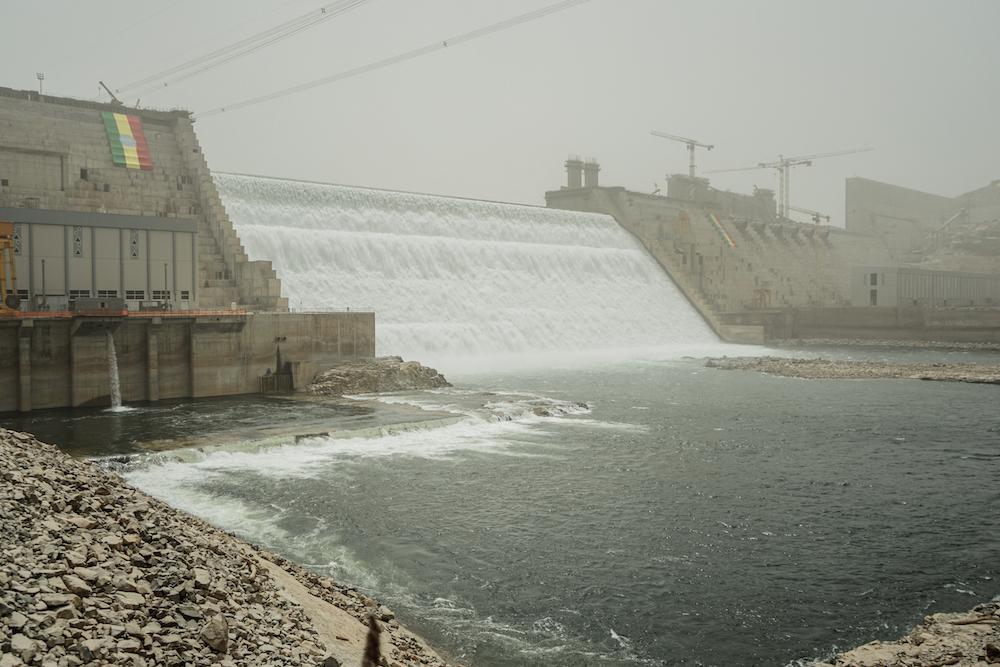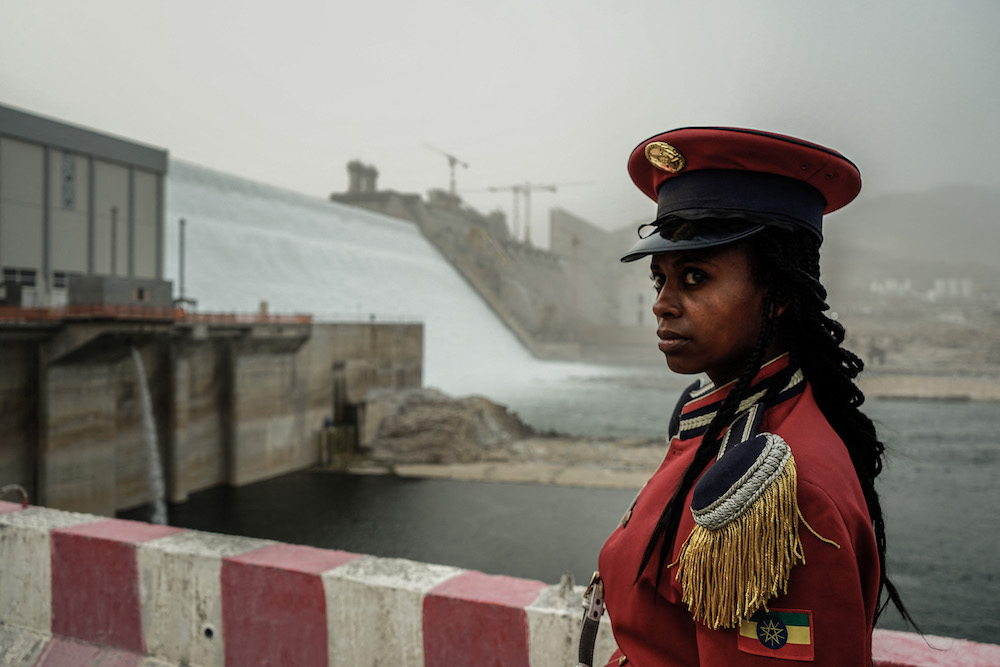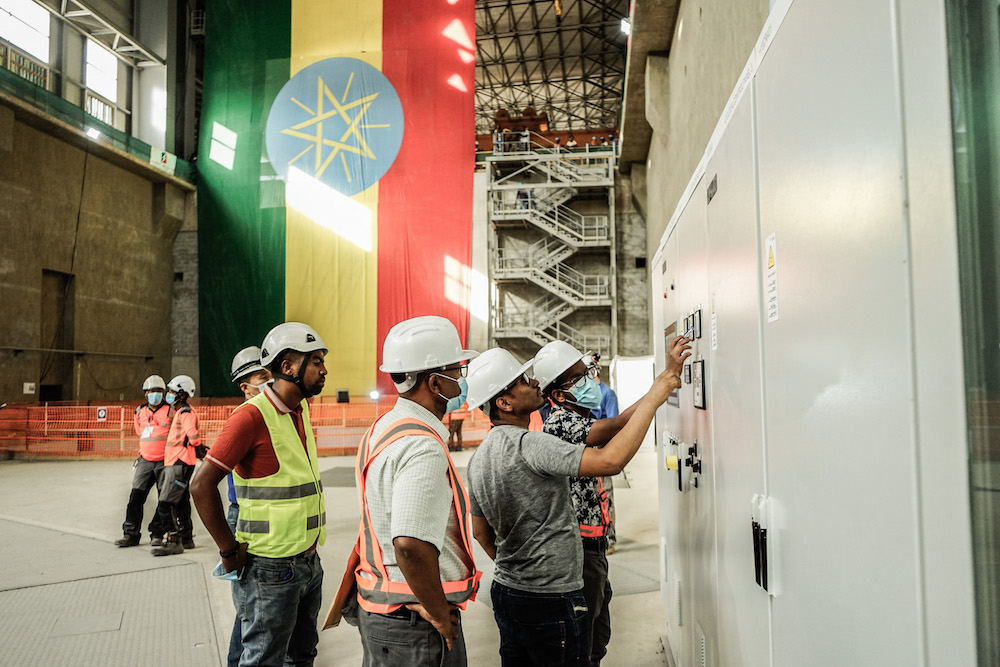CAIRO: In November 2021, the Egyptian and American foreign ministries issued a joint statement at the conclusion of strategic talks between the two countries in Washington. It included a call for the urgent resumption of negotiations over the operation of the Renaissance Dam in Ethiopia.
It said such discussions should take place under the auspices of the African Union, in line with the presidential statement issued by the UN Security Council on Sep. 15, 2021, and the Declaration of Principles Agreement signed by Egypt, Ethiopia and Sudan in 2015.
The statement emphasized US President Joe Biden’s support for Egypt’s water security but there have been no further comments from Washington clarifying the American position on the Ethiopian intransigence that has stalled negotiations, or on the continued unilateral actions taken by Addis Ababa.
During a visit to Riyadh this month, Biden is expected to meet the leaders of the Gulf nations and Egypt to discuss a range of important issues and the Renaissance Dam might well be one of them, according to experts Arab New talked to.

The regional dispute over the Grand Ethiopian Renaissance Dam is likely to feature in talks between US President Joe Biden and Gulf leaders in Riyadh. (AFP)
Ali Al-Hafny, Egypt’s former ambassador to China and a former deputy minister of foreign affairs for African affairs, said that the issue of the Renaissance Dam must be discussed during Biden’s visit, especially after Ethiopia last month appointed its chief negotiator, Seleshi Bekele.
According to Al-Hafny, the dam is currently a key issue for Ethiopian authorities and one of Bekele’s tasks will be to explain his country’s position on it to decision-makers in the US.
He added that US-Ethiopian relations were strained under the administration of President Donald Trump, which was flexible in its dealings with Cairo and imposed sanctions on Addis Ababa over the civil war between the Ethiopian government and the Tigray region, which was described as a genocide by many members of the US Congress.
Mohammed Nasr Allam, a former Egyptian minister of water resources, told Arab News that any discussions between US and Egyptian officials about the Renaissance Dam will take place through proper channels of communication, and that even if such talks are not made public they will certainly be taking place.

A member of the Republican March Band poses for photo before at the ceremony for the inaugural production of energy at the Grand Ethiopian Renaissance Dam. (AFP)
He stressed that Egypt must propose to the US, and the international community, an agreement, in cooperation with Sudan, on the rules for the filling and operation of the dam that guarantees both countries their fair shares of Nile water and does not affect the operation and safety of existing dams, in accordance with international law.
Allam added that Cairo and Khartoum must also confirm to Washington the necessary legal framework for their commitment, and that of Adis Ababa, to these rules for filling and operating the dam, including the legal steps that can be taken in the event of any violation of the agreements between the three countries, under international and regional auspices.
All technical and legal agreements must be published officially for the world to see, he said, and a time limit, not exceeding six weeks, must be set for Ethiopia to submit its formal observations on them, otherwise they will be considered binding. Any subsequent violation of the agreements by Addis Ababa would be considered an official act of aggression against the other two countries, he added.

Workers are seen at the site of the Grand Ethiopian Renaissance Dam (GERD) in Guba, Ethiopia, on February 19, 2022. (AFP)
Allam pointed out that the clock is ticking on the issue of the dam but the international community, with America at the forefront, is turning a blind eye to what Ethiopia is doing in what he described as “a strange way.”
The Entebbe Agreement was signed in May 2010 by Ethiopia, Uganda, Rwanda and Tanzania, all of which are upstream of the dam. Egypt and Sudan, which are downstream, objected to it because it ends their historical rights to a share of Nile water.
Egyptian President Abdel Fattah El-Sisi held a meeting with US National Security Adviser Jake Sullivan in May, during which he emphasized Egypt’s firm stance on the necessity of reaching a binding legal agreement for filling and operating the dam in a way that preserves Egyptian water security and achieves the common interests of Egypt, Sudan and Ethiopia. However, negotiations over the dam have been suspended for some time.
















